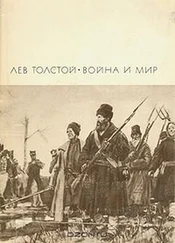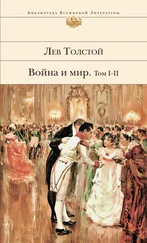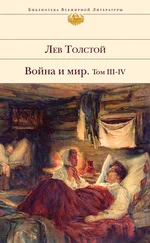| Prince Hippolyte stood close to the pretty, pregnant princess, and stared fixedly at her through his eyeglass. |
Князь Ипполит стоял возле хорошенькой беременной княгини и упорно смотрел прямо на нее в лорнет. |
| "Go in, Annette, or you will catch cold," said the little princess, taking leave of Anna Pavlovna. "It is settled," she added in a low voice. |
- Идите, Annette, вы простудитесь, - говорила маленькая княгиня, прощаясь с Анной Павловной. - C'est arr?t?, [Решено,] - прибавила она тихо. |
| Anna Pavlovna had already managed to speak to Lise about the match she contemplated between Anatole and the little princess' sister-in-law. |
Анна Павловна уже успела переговорить с Лизой о сватовстве, которое она затевала между Анатолем и золовкой маленькой княгини. |
| "I rely on you, my dear," said Anna Pavlovna, also in a low tone. "Write to her and let me know how her father looks at the matter. |
- Я надеюсь на вас, милый друг, - сказала Анна Павловна тоже тихо, - вы напишете к ней и скажете мне, comment le p?re envisagera la chose. |
| Au revoir!"-and she left the hall. |
Au revoir, [Как отец посмотрит на дело. До свидания,] - и она ушла из передней. |
| Prince Hippolyte approached the little princess and, bending his face close to her, began to whisper something. |
Князь Ипполит подошел к маленькой княгине и, близко наклоняя к ней свое лицо, стал полушопотом что-то говорить ей. |
| Two footmen, the princess' and his own, stood holding a shawl and a cloak, waiting for the conversation to finish. They listened to the French sentences which to them were meaningless, with an air of understanding but not wishing to appear to do so. |
Два лакея, один княгинин, другой его, дожидаясь, когда они кончат говорить, стояли с шалью и рединготом и слушали их, непонятный им, французский говор с такими лицами, как будто они понимали, что говорится, но не хотели показывать этого. |
| The princess as usual spoke smilingly and listened with a laugh. |
Княгиня, как всегда, говорила улыбаясь и слушала смеясь. |
| "I am very glad I did not go to the ambassador's," said Prince Hippolyte "-so dull-. It has been a delightful evening, has it not? Delightful!" |
- Я очень рад, что не поехал к посланнику, -говорил князь Ипполит: - скука... Прекрасный вечер, не правда ли, прекрасный? |
| "They say the ball will be very good," replied the princess, drawing up her downy little lip. "All the pretty women in society will be there." |
- Г оворят, что бал будет очень хорош, - отвечала княгиня, вздергивая с усиками губку. - Все красивые женщины общества будут там. |
| "Not all, for you will not be there; not all," said Prince Hippolyte smiling joyfully; and snatching the shawl from the footman, whom he even pushed aside, he began wrapping it round the princess. |
- Не все, потому что вас там не будет; не все, -сказал князь Ипполит, радостно смеясь, и, схватив шаль у лакея, даже толкнул его и стал надевать ее на княгиню. |
| Either from awkwardness or intentionally (no one could have said which) after the shawl had been adjusted he kept his arm around her for a long time, as though embracing her. |
От неловкости или умышленно (никто бы не мог разобрать этого) он долго не опускал рук, когда шаль уже была надета, и как будто обнимал молодую женщину. |
| Still smiling, she gracefully moved away, turning and glancing at her husband. |
Она грациозно, но всё улыбаясь, отстранилась, повернулась и взглянула на мужа. |
| Prince Andrew's eyes were closed, so weary and sleepy did he seem. |
У князя Андрея глаза были закрыты: так он казался усталым и сонным. |
| "Are you ready?" he asked his wife, looking past her. |
- Вы готовы? - спросил он жену, обходя ее взглядом. |
| Prince Hippolyte hurriedly put on his cloak, which in the latest fashion reached to his very heels, and, stumbling in it, ran out into the porch following the princess, whom a footman was helping into the carriage. |
Князь Ипполит торопливо надел свой редингот, который у него, по-новому, был длиннее пяток, и, путаясь в нем, побежал на крыльцо за княгиней, которую лакей подсаживал в карету. |
| "Princesse, au revoir," cried he, stumbling with his tongue as well as with his feet. |
- Рrincesse, au revoir, [Княгиня, до свиданья,] -кричал он, путаясь языком так же, как и ногами. |
| The princess, picking up her dress, was taking her seat in the dark carriage, her husband was adjusting his saber; Prince Hippolyte, under pretense of helping, was in everyone's way. |
Княгиня, подбирая платье, садилась в темноте кареты; муж ее оправлял саблю; князь Ипполит, под предлогом прислуживания, мешал всем. |
| "Allow me, sir," said Prince Andrew in Russian in a cold, disagreeable tone to Prince Hippolyte who was blocking his path. |
- Па-звольте, сударь, - сухо-неприятно обратился князь Андрей по-русски к князю Ипполиту, мешавшему ему пройти. |
| "I am expecting you, Pierre," said the same voice, but gently and affectionately. |
- Я тебя жду, Пьер, - ласково и нежно проговорил тот же голос князя Андрея. |
| The postilion started, the carriage wheels rattled. |
Форейтор тронулся, и карета загремела колесами. |
| Prince Hippolyte laughed spasmodically as he stood in the porch waiting for the vicomte whom he had promised to take home. |
Князь Ипполит смеялся отрывисто, стоя на крыльце и дожидаясь виконта, которого он обещал довезти до дому. |
| "Well, mon cher," said the vicomte, having seated himself beside Hippolyte in the carriage, "your little princess is very nice, very nice indeed, quite French," and he kissed the tips of his fingers. |
- Eh bien, mon cher, votre petite princesse est tr?s bien, tr?s bien, - сказал виконт, усевшись в карету с Ипполитом. - Mais tr?s bien. - Он поцеловал кончики своих пальцев. - Et tout-?-fait fran?aise. [Ну, мой дорогой, ваша маленькая княгиня очень мила! Очень мила и совершенная француженка.] |
| Hippolyte burst out laughing. |
Ипполит, фыркнув, засмеялся. |
| "Do you know, you are a terrible chap for all your innocent airs," continued the vicomte. |
- Et savez-vous que vous ?tes terrible avec votre petit air innocent, - продолжал виконт. - Je plains le pauvre Mariei, ce petit officier, qui se donne des airs de prince r?gnant.. [А знаете ли, вы ужасный человек, несмотря на ваш невинный вид. |
| "I pity the poor husband, that little officer who gives himself the airs of a monarch." |
Мне жаль бедного мужа, этого офицерика, который корчит из себя владетельную особу.] |
| Hippolyte spluttered again, and amid his laughter said, |
Ипполит фыркнул еще и сквозь смех проговорил: |
| "And you were saying that the Russian ladies are not equal to the French? |
- Et vous disiez, que les dames russes ne valaient pas les dames fran?aises. Il faut savoir s'y prendre. [А вы говорили, что русские дамы хуже французских. |
| One has to know how to deal with them." |
Надо уметь взяться.] |
| Pierre reaching the house first went into Prince Andrew's study like one quite at home, and from habit immediately lay down on the sofa, took from the shelf the first book that came to his hand (it was Caesar's Commentaries), and resting on his elbow, began reading it in the middle. |
Пьер, приехав вперед, как домашний человек, прошел в кабинет князя Андрея и тотчас же, по привычке, лег на диван, взял первую попавшуюся с полки книгу (это были Записки Цезаря) и принялся, облокотившись, читать ее из середины. |
| "What have you done to Mlle Scherer? |
- Что ты сделал с m-lle Шерер? |



